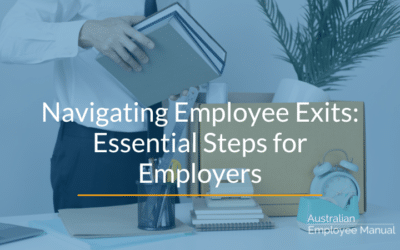One of the truisms in HR is that new hires join a business. When people are hired, they are signing on to contribute their labour and best efforts into delivering the bigger vision for the organisation. No employee ever joins a business with the intention of failing or doing a bad job.
People who resign from a business, particularly in the first year of their hire, are not leaving the business vision, but something deeper. You may hear them talking about better
Dig a little bit deeper and you will generally find that the moment of truth that prompted them to explore other options in the first place can be traced back to an individual manager.
People leave managers. A managers impact on employees is a direct correlation with employee turnover.
The Fulfilment – Performance Link
Wilson Learning Research (1) have found over a number of studies that:
- The single most important factor in creating a sense of fulfilment is the leadership skills of an employee’s manager.
- Between 56% and 83% of fulfilment could be predicted from the skills and practises of the manager or leader.
- When employee fulfilment was high, so was performance; when employee fulfilment was low, so was performance.
- 39% of bottom-line performance can be attributed to employee fulfilment.
Their studies suggest
“However, even if these conditions are perfect, this elimination of dissatisfaction does not mean that employees feel fulfilled, only that they no longer are dissatisfied. And it is employee fulfilment, not satisfaction, that predicts performance. It is the individual manager who creates, or fails to create, fulfilment.”
Jim Collins wrote in “Good to Great” “If you have the right people on the bus, they will be self-motivated. The real question then becomes: How do you manage in such a way as not to de-motivate people?“
Why Turnover Happens In The First 45 Days
So what happens when people leave after only a little while? The Wynhurst Group (2) have found 22% of all employee turnover occurs in the first 45 days of employment, with issues being identified including either overselling or underselling the job or there not being a cultural fit between workplace culture and the individual.
“These are subtle but very important variables in assuring that a job “fits” the individual. … “What counts” – values live in the air we breathe. Our bodies feel excitement (innovation), boredom (rule-bound regulations), dishonesty (people have
“Cultural values (not what’s posted on the website) but what’s lived in the corridors and boardrooms are instinctually known to us. This sense of “connect” or “disconnect” may be hard to decipher or discuss in the short term but this lack of synchronicity or “fit” accounts for a large number of new hires who leave shortly after joining an organization. The job is right but the culture is not.”
These issues come down to the manager not being honest with candidates about the true nature of their role, or about the workplace culture they have created. As a result, people become de-motivated and take action to move to another opportunity. People leave managers.
What Managers Can Do About It
So as a manager, what can you do to motivate your employees and as a result, increase retention?
Daniel Pink in his book “Drive: The Surprising Truth About What Motivates Us” suggests that traditional carrot and stick, control type management is no longer working. He suggests that we need a new approach to management and motivation that is based on self-determination theory.
He believes people are motivated by three intrinsic drives. “This new approach has three essential elements: 1. Autonomy – the desire to direct our own lives. 2. Mastery — the urge to get better and better at something that matters. 3. Purpose — the yearning to do what we do in the service of something larger than ourselves.” (3)
By providing employees with autonomy over all or the main aspects of their work, by allowing them to develop their skills at things that matter to them, and to tap into their desire to contribute to a cause bigger than them, managers can increase motivation and fulfilment,
If you take action to support these drivers of behaviour, then you will not be the manager that people leave … but become the manager that people praise in years to come as, “The best manager they have ever had”.
If you would like to know more about what motivates people, then this video outlining Daniel Pink’s theory in more detail is a great start.
Daniel Pink – Drive: The Surprising Truth About What Motivates Us
Further Reading
- Redefining Employee Satisfaction: Business Performance, Employee Fulfilment and Leadership Practices http://www.wilsonlearning.com/wlw/research-paper/l/employee-satisfaction
- Help New Hires Succeed: Beat the Statistics http://www.thewynhurstgroup.com/press/ArticleMay07_HelpNewHires.pdf
- Daniel Pink – Drive: The Surprising Truth About What Motivates Us




